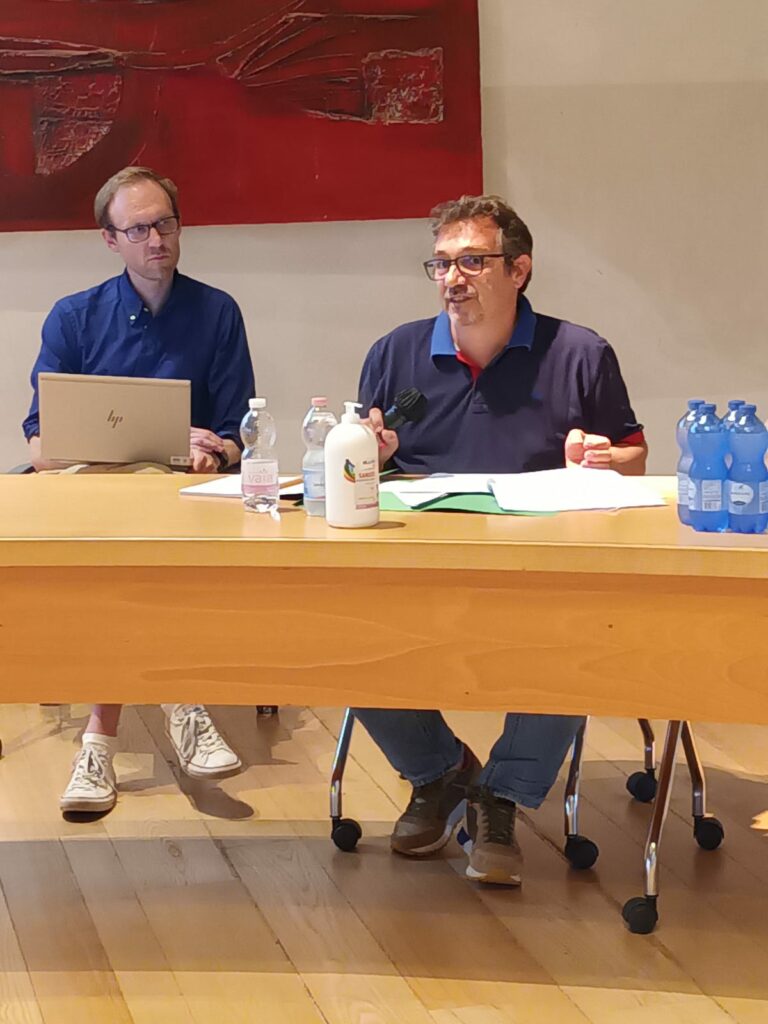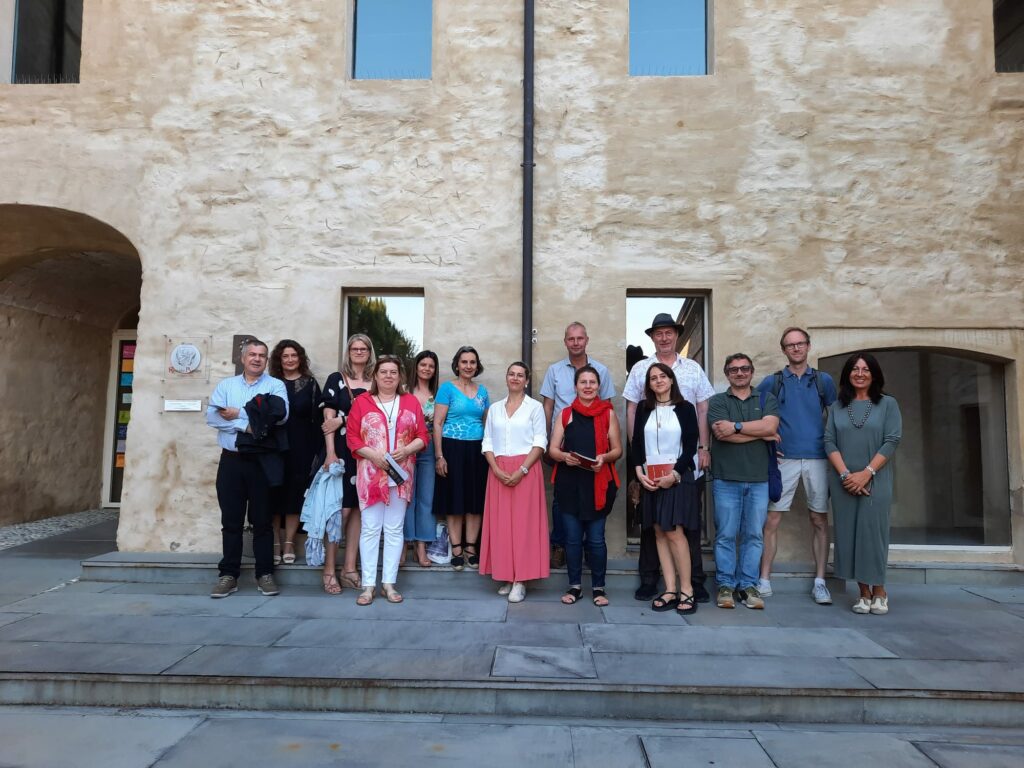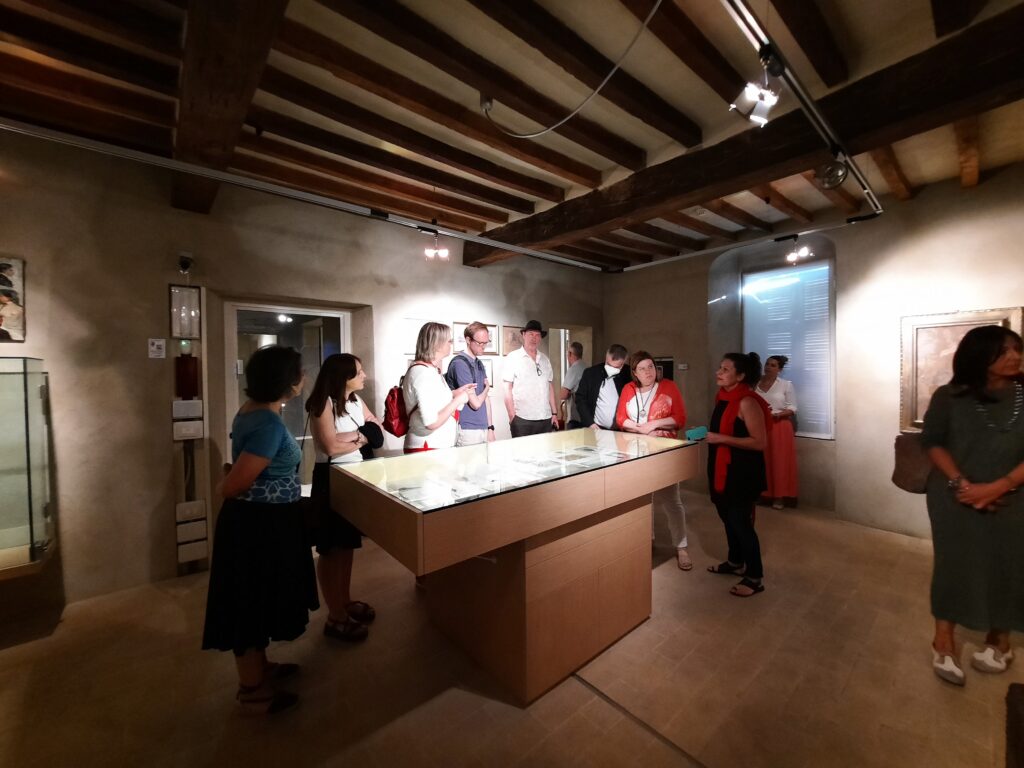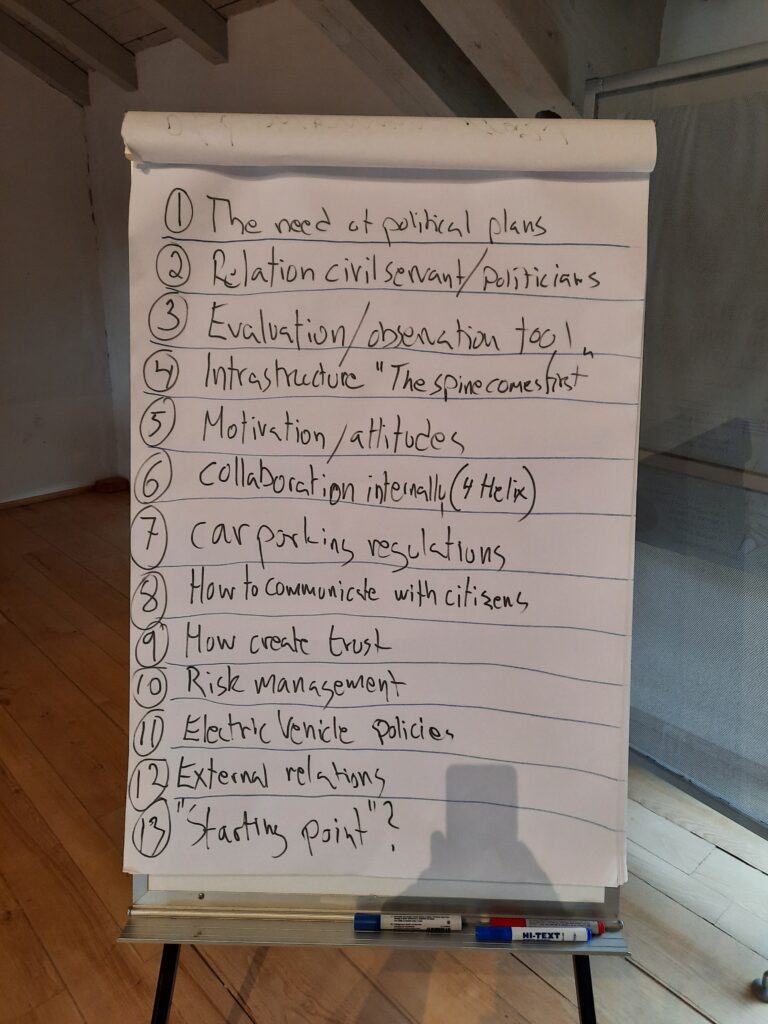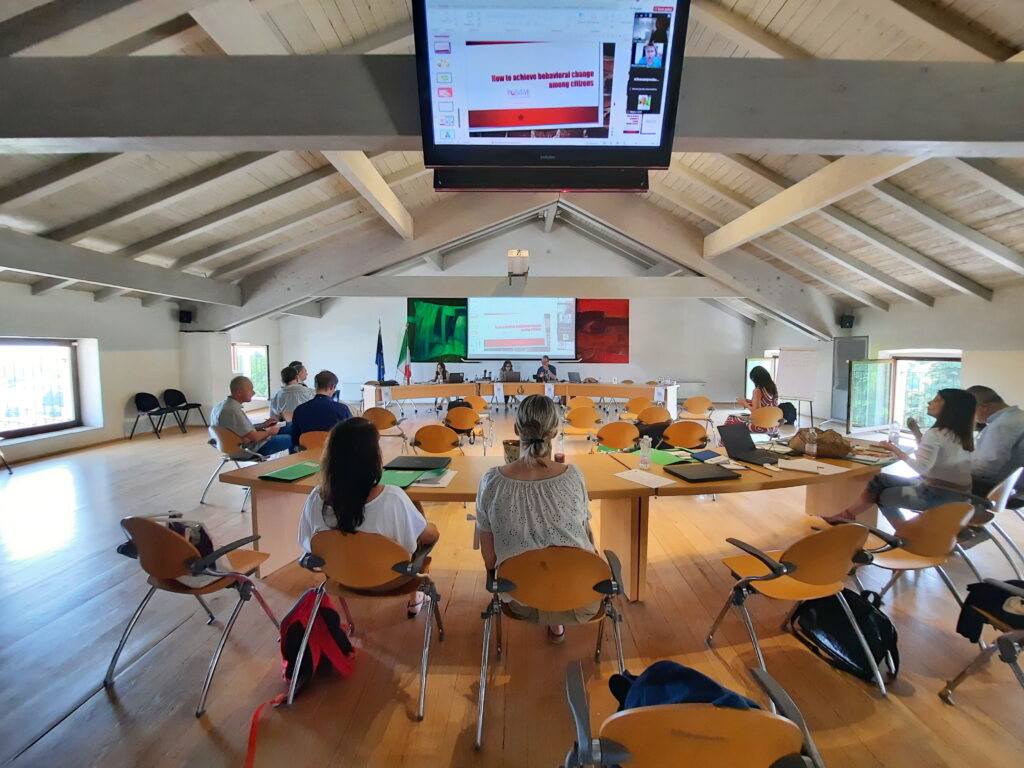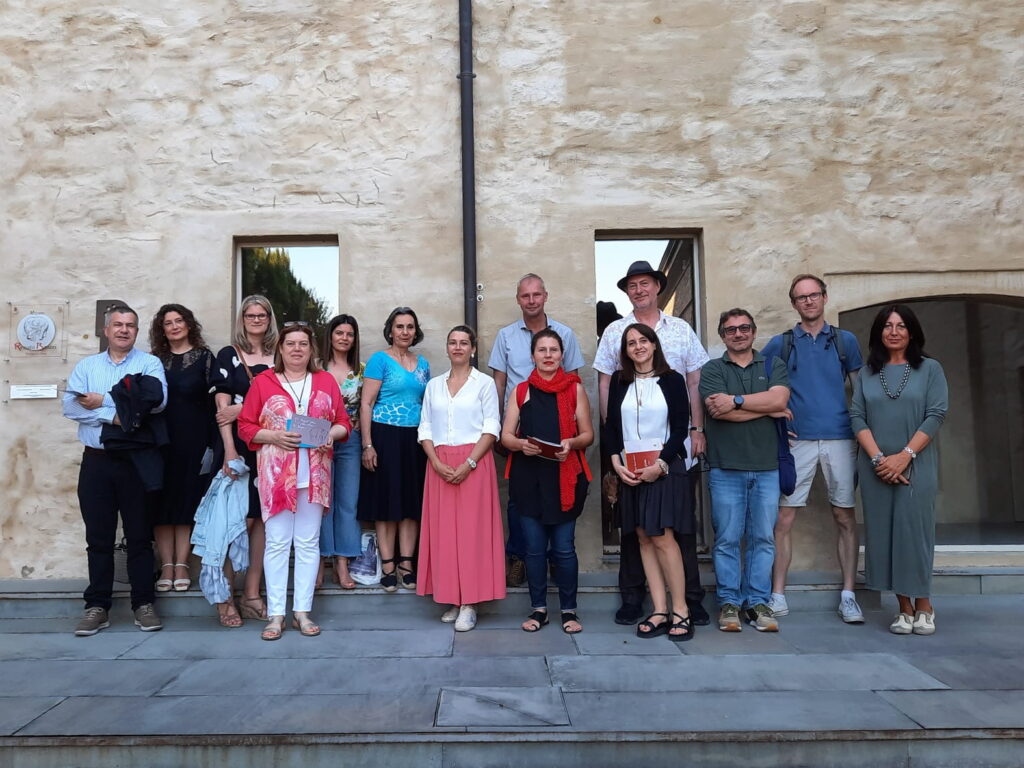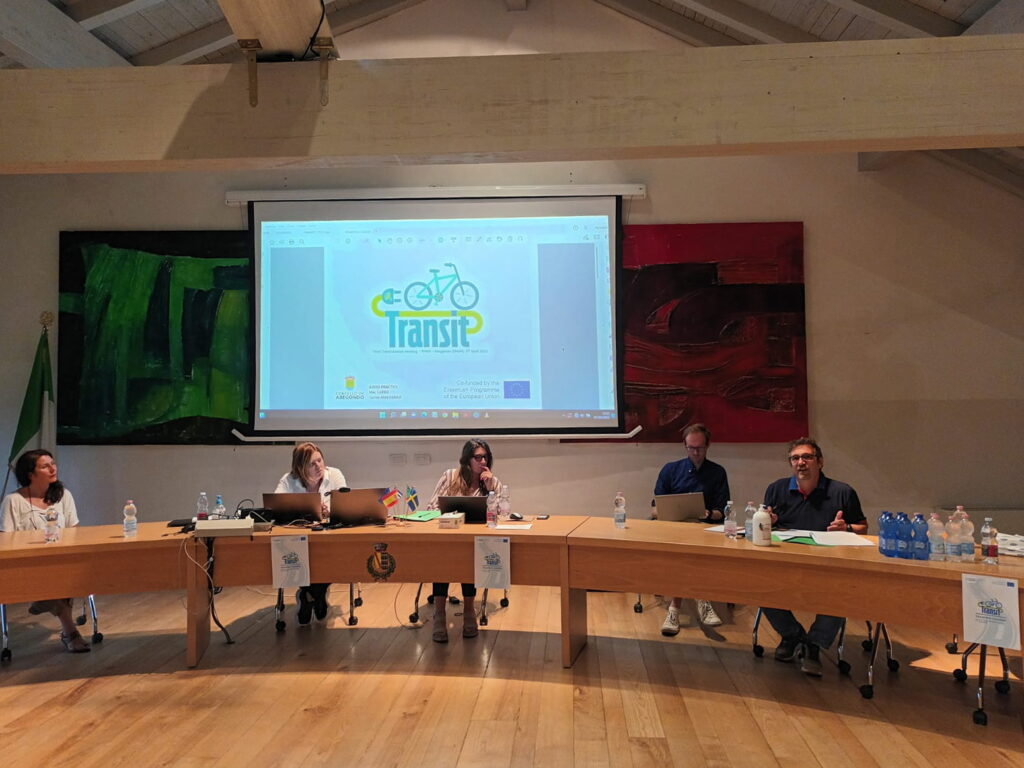Learning and training activities
The LTTA meeting in Collecchio/Sala Baganza was very intense and productive for all participants. The meeting and activities was welcomed by Daniele Friggeri (President of UPP). Then, a set of expert and researcher did interventions that served as an intellectual input to the upcoming panel discussion and workshops. First, Christiana Pirasmaki (Ecocity) elaborated on how to change mindsets and attitudes; followed by Max Hansson (environmental researcher from Karlstad University) on the needs and benefits of sustainable mobility; Magnus Lindh (Karlstad University) gave a speech on evidence based research on how to promote a behavioral change towards increased use of bicycle; Elisavet Georgiou (Ecocity and the Institute of Mental Health and Well-being) on behavioral change from a psychological perspective and Kostantinos (Ecocity) on his experiences on changing citizens behavior towards bicycling. Then, Teresa Gallelli (Lepida) presented the results from the Transit Survey by highlighting challenges and possibilities that has been emphasized in general.
In the panel discussions, panelists exchanged experiences on the theme of raising awareness among citizens on the use of sustainable means of transportation in urban and peripheral areas. Particularly on how to adopt informal learning pathways and methods. The panelists was Mikael Haster (Karlstad Municipality) Vasiliki Stoumpou (Ecocity), Gabriele Franzini (Unione Pedemontana Parmense), Roberto Dallavalle (policymaker, Collecchio Municipality) and Norberto Vignali (policy maker, Sala Baganza Municipality) and Maria Carro (Abegondo).
From the debate we identified 12 challenges that was brought to the table. Of these, the participants prioritized three fields of challenges, that we highlighted, discussed and structured our e-learning modules around. Our three prioritized fields: The need of political decided strategic plans for long term activities; how to change attitudes and motivating citizens and a bike friendly infrastructure.
In the workshops during the second day smaller groups discussed the three prioritized fields. The extensive discussions resulted in a set of themes, that connect the results from the survey, the theoretical and evidenced based knowledge from the expert presentations, the good practices from the partner organisations and the three prioritized fields from the panel discussion. This gave us a comprehensive and extensive set of data and proposals that we used to elaborate on for the e-learning modules.
After the presentation of the results from the workshops, Mikael Haster (Karlstad Municipality) held a presentation about the SUMO- Model, which is an evaluation tool dedicated to sustainable mobility project that we have included in the digital toolbox.
GALLERY


